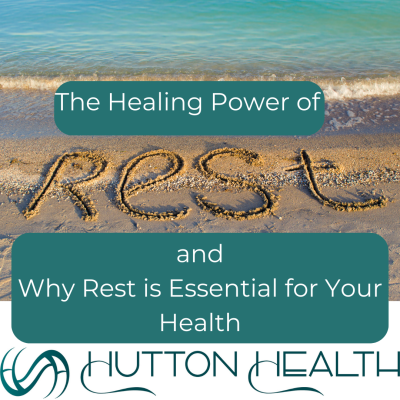Understanding Stress: How Our Bodies React and Ways to Cope
7th March 2024
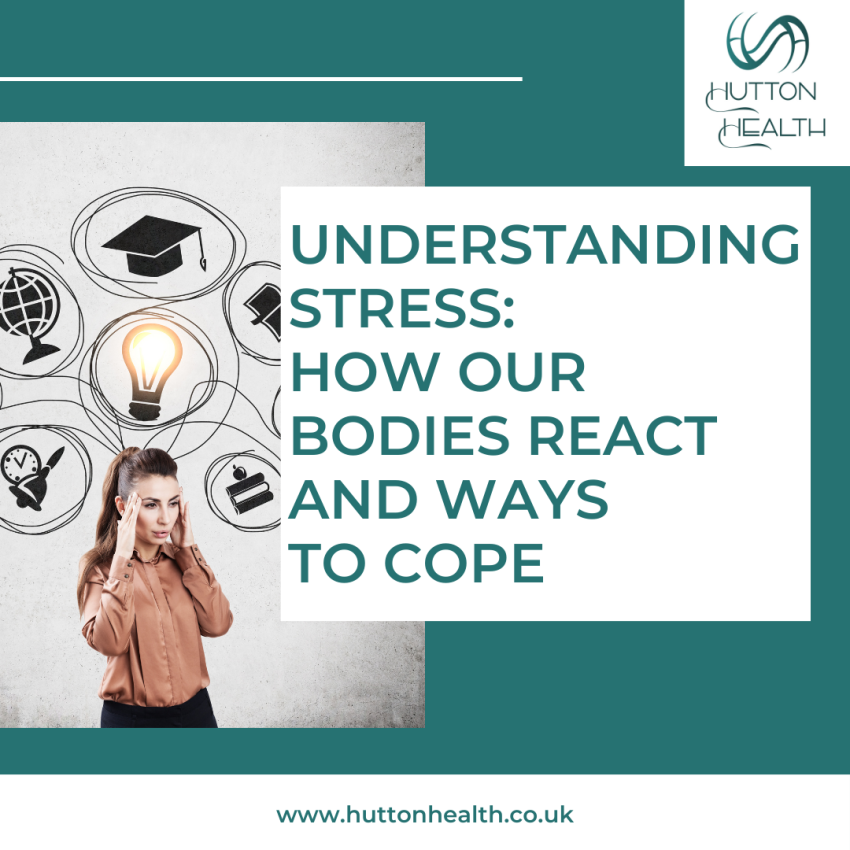
(This post may contain referral links. Please read my disclaimer for more info.) As an Amazon Associate I earn from qualifying purchases.
I meet clients on a regular basis who are frazzled, overwhelmed and struggling to deal with the pressures and stressors in life. I’ve had times in my life when I have felt like a hamster on a wheel, unable to stop moving through the motions in fear that everything around me would crumble.
Stress has a bad reputation and can be the reason many of us blame for our sleepless nights, the exhaustion we feel, the chocolate fix we need and our mental health struggles.
We are always going to have stress in our life. Building a toolkit of strategies to deal with stressful moments and situations as well as taking steps regularly to improve our wellbeing are ways to ensure that we can cope with the stress we experience rather than having it cripple us.
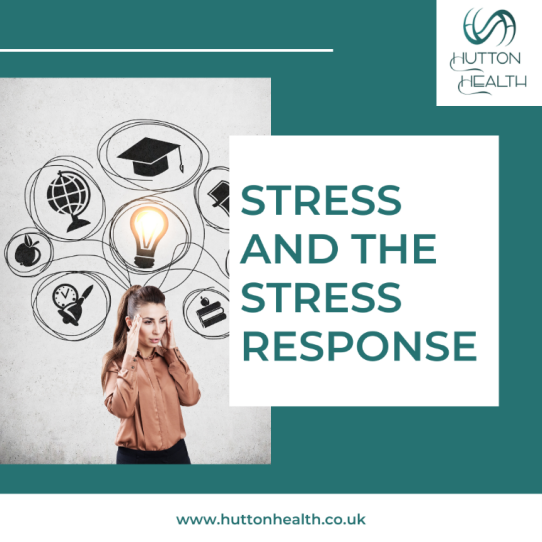
Stress and the Stress Response
Stress is the body's natural response to demands or threats, whether they are real or perceived, triggering a cascade of physiological and psychological reactions. It often manifests as feelings of tension, pressure, or overwhelm, impacting both your mental and physical wellbeing.
Stressors are the things that cause us stress and can be psychological or physical.
Common psychological stressors include financial difficulties, work pressure, relationship conflicts, and health concerns, all of which can significantly impact your wellbeing.
Common physical stressors include strenuous physical activity, sleep deprivation, exposure to extreme temperatures, and nutritional deficiencies, all of which can exert significant strain on the body's physiological processes.
The stress response is a generalised system in our body that initiates how our body functions. Our stress system cannot differentiate between the type of stressors that we are experiencing and reacts in the same way, regardless of the stress that you are facing.
When our body senses danger, the stress response kicks in and our body releases cortisol and adrenaline which affects the way our body functions. I’m sure you’ve heard of ‘fight, flight, or freeze’, all common responses when we face danger.
I can think of moments in my life when I have reacted in each of these 3 ways in response to stress.
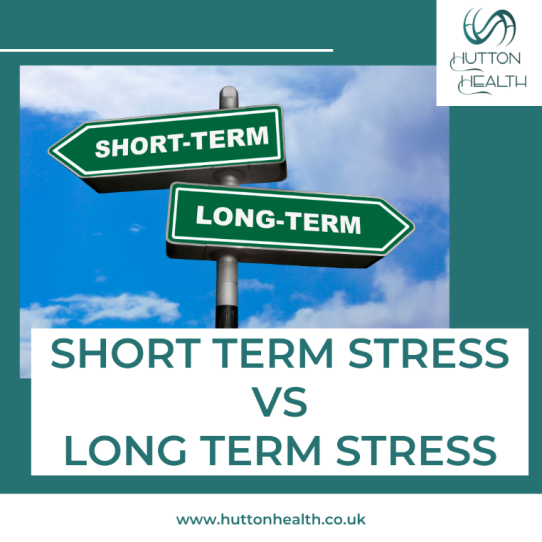
Short term stress versus long term stress
There is a difference between short term and long term stress. Over time, chronic stress can have a negative impact on our health and wellbeing. Find out more about the effects of stress on our health in this blog.
When we experience short term stress, our body initiates a stress response. The body releases adrenaline which activates some systems in the body and slows down others.
We can equate stress as a negative thing in our life that we need to get rid of if we have a chance to be healthy and happy. The right type of stress, however, can stimulate us in a way that many people seek, such as watching a scary movie or a thrilling ride at a theme park.
The stress response looks and feels quite similar to our excitement response.
The optimal short term stress level can help us perform at our best. The goal is to be alert and calm
- Short-term stress, when managed appropriately, can offer several benefits:
- Stress can sharpen our mental clarity
- The stress response can keep us alive
- Stress can improve focus and alertness
- Enhanced cognitive function and problem-solving skills
- Temporary boosts in physical performance
- Increased motivation to complete tasks
- Improved immune system
- Enhanced memory consolidation
- Quicker reaction time in certain situations
- Increased resilience and adaptability to future stressors through stress exposure
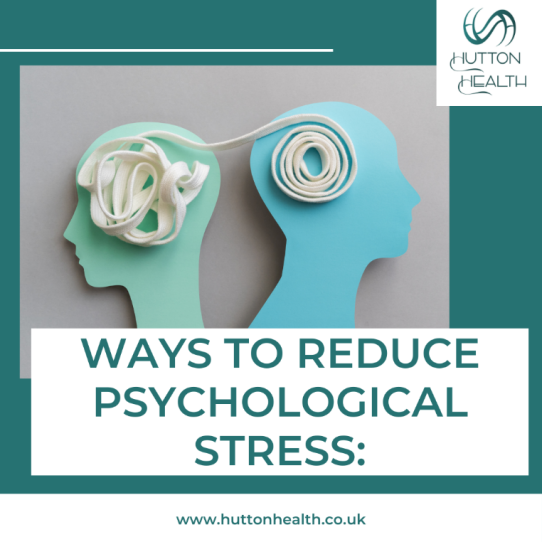
Ways to reduce psychological stress:
The lifestyle choices that you make on a daily basis all work together to help us handle stress. If you prioritise your health and wellbeing regularly, you will be better equipped to deal with stressful moments without them pushing you to your ‘breaking point’ or limit.
I have had those moments when it has felt like my blood was boiling inside my body and it felt like it needed to erupt out of my body. It’s an uncomfortable feeling that I hated to experience. Learning to prioritise my mental and physical health has allowed me to approach life’s challenges and stresses in a more manageable way that means this boiling point hasn’t been reached for a very long time.
There are various effective ways to reduce and manage psychological stress. It is truly in building a lifestyle where you make choices each day that help you feel your best that best prepares you for dealing with stressful moments.
Strategies for reducing stress and prioritising your health and wellbeing:
Regular exercise
Engaging in physical activity such as walking, jogging, yoga, or dancing can help reduce stress hormones and promote the release of endorphins, which are natural mood lifters.
Find out ways to fit exercise into a busy schedule in this blog.
Need some help getting started or accountability to keep you committed to an exercise programme? Hutton Health offers a monthly membership with live online workouts each week, a structured exercise programme delivered through the Hutton Health app and a community of supportive people on a similar journey.
Eat a balanced diet
Eat a nutritious diet rich in fruits, vegetables, whole grains, and lean proteins. Avoid excessive consumption of caffeine, alcohol, and sugary foods, as they can exacerbate stress levels.
Focus on what you can ‘add in’ to your diet rather than ‘take away’.
Focus on adequate sleep
Aim for 7-9 hours of quality sleep per night. Establish a relaxing bedtime routine and create a conducive sleep environment to promote restful sleep and reduce stress.
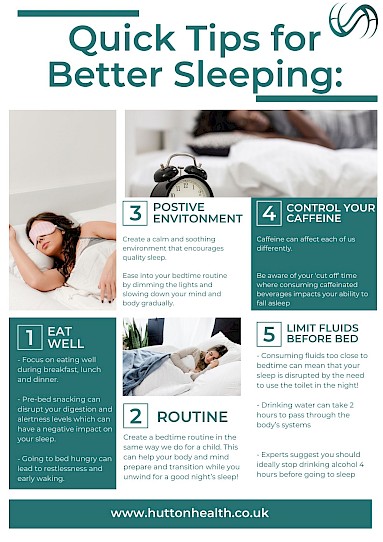
Establish boundaries
Learn to say no to excessive commitments and prioritise tasks. Setting boundaries can help prevent overwhelm and reduce stress from feeling overburdened.
Consider who you can effectively communicate your boundaries to; doing so will strengthen your commitment to upholding those boundaries you set for yourself.
Seek Social Support
Connect with friends, family, or support groups to share your feelings and experiences. Having a support network can provide emotional validation, practical assistance, and a sense of belonging, which can buffer against stress.
Focus on what you can control
Focusing on what you can control in a situation can reduce stress levels if it is a mild to moderate stressor. It can be overwhelming worrying about things that are out of our control which can make our stress levels rise even further in stressful situations.
Having a sense of control is a great way to reduce stress levels.
Practice Relaxation Techniques
Incorporate relaxation techniques such as deep breathing exercises, progressive muscle relaxation, mindfulness meditation, or visualization techniques to calm the mind and reduce stress levels.
Find out more about the healing power of rest in this blog.
Time Management
Break tasks into manageable chunks, prioritise important activities, and allocate time for relaxation and self-care. Effective time management can reduce feelings of being overwhelmed and increase productivity.
Engage in Leisure Activities
Make time for hobbies and activities that bring you joy and relaxation, such as reading, gardening, listening to music, or spending time in nature. I used to think taking the time for leisure activities was a luxury, but now appreciate its importance in helping me feel my best.
Including my son in my leisure activities is a great way to remove any guilt from taking the time to enjoy activities that previously didn’t necessarily feel ‘productive’.
Practice Positive Thinking
Challenge negative thoughts and cultivate a positive outlook by focusing on gratitude, optimism, and self-compassion. Reframing stressful situations in a more positive light can help reduce their impact on mental well-being.
Seek Professional Help
If stress becomes overwhelming or persistent, consider seeking support from a mental health professional such as a therapist or counsellor. They can provide guidance, coping strategies, and therapeutic interventions tailored to your individual needs.
Find the stress management technique that works for you and use it regularly to manage your stress levels. Dedicating time each day to prioritising your wellbeing highlights its importance to you.
The right stress management technique for you is the one that you enjoy, that you will regularly make time for you, and that makes you feel calmer and reduced your chronic stress.


